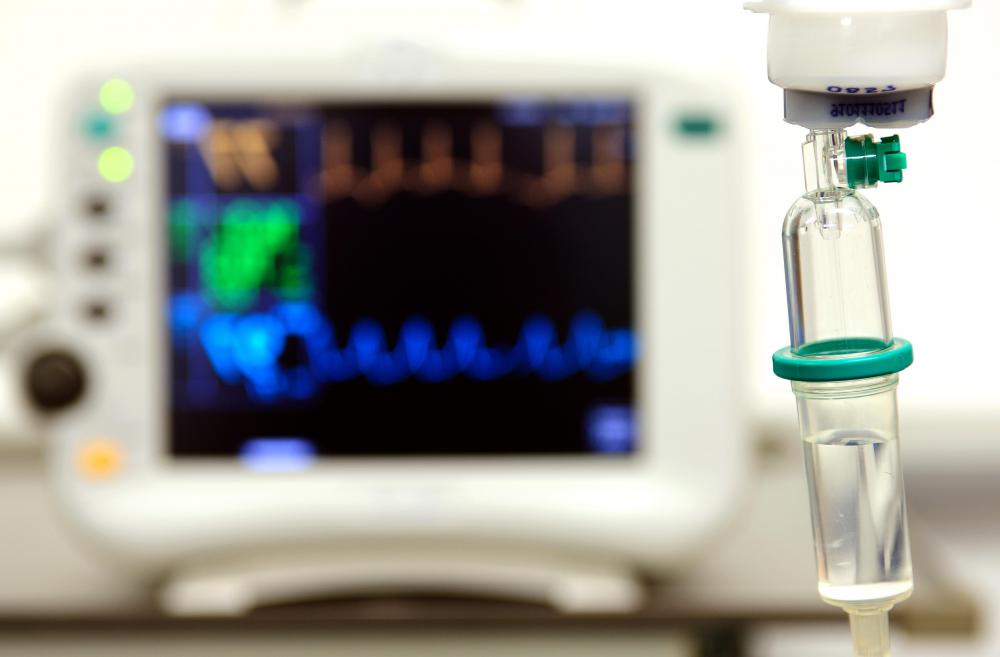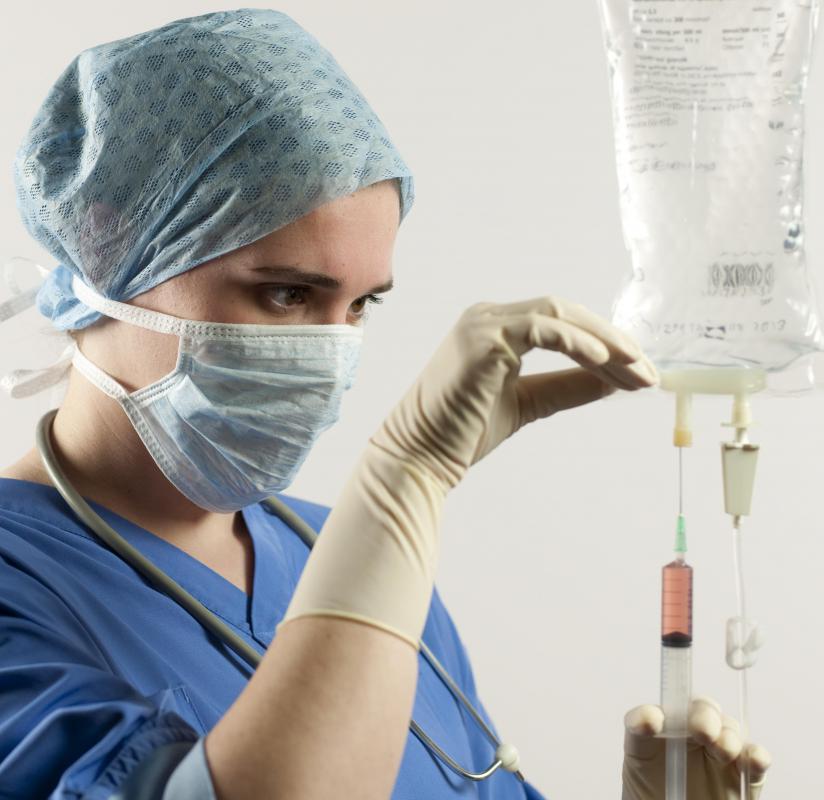At TheHealthBoard, we're committed to delivering accurate, trustworthy information. Our expert-authored content is rigorously fact-checked and sourced from credible authorities. Discover how we uphold the highest standards in providing you with reliable knowledge.
What is the Antidote for Heparin?
Protamine sulfate, a compound derived from purified fish sperm, is the antidote for heparin. Heparin is an anti-coagulant, or blood thinner, that is often given to patients prior to cardiac surgical procedures such as a cardiopulmonary bypass in order to prevent blood clots from forming. The drug is also used to treat cardiac diseases, sudden cardiac arrest, and blood clotting disorders. On its own, the heparin antidote also has a mild anticoagulation effect. When taken after heparin poisoning has been experienced, however, the binding of the two compounds removes the anticoagulant abilities of both drugs.
The type of heparin side effects experienced indicate if and when the antidote for heparin is administered. Side effects such as chills, hair loss, and headaches do occur; other adverse effects often associated with heparin include nausea, bruising, and chest pain. Heparin has a short half-life of about 30 minutes, meaning that once the drug has been administered, it metabolizes quickly and disappears from blood circulation. Therefore, simply stopping the administration of heparin may be enough to reverse some adverse effects without needing the antidote for heparin. These symptoms, however, are still considered to be serious, and patients taking heparin are typically directed to immediately inform their doctor of these adverse effects.

In cases where excessive bleeding is experienced, the antidote for heparin is generally used to stop the drug's effects and to prevent permanent injury or a bleeding-related fatality from occurring. Some of the more visible signs of heparin overdose include unexplained nosebleeds, excessive menstrual bleeding, and blood in the urine. Black stools are also a sign that intestinal bleeding may be occurring.

Heparin’s antidote, protamine sulfate, is delivered intravenously (IV). The amount of protamine sulfate given will generally depend on how long it has been since the patient was injected with heparin. Typically, a dose of 1 milligram is given for every 100 units of heparin that has been ingested if the last heparin dose was given within the last 30 minutes. As the amount of time increases since a heparin dose was given, the amount of heparin given also usually decreases. For instance, if the last dose of heparin had been received an hour ago, then a 0.5 milligram dose of protamine sulfate for every 100 units of heparin may be sufficient.

A slow IV drip of 10 minutes is used when administering the antidote for heparin because the antidote can also cause serious side effects. One such side effect is anaphylactic shock, a severe allergic reaction that could be lethal. To minimize this danger, the maximum dose that can be given in this 10-minute window is 50 milligrams. Generally, protamine sulfate will work rapidly. The effects of heparin are usually reversed within five minutes, and excessive bleeding should begin to slow.
AS FEATURED ON:
AS FEATURED ON:

















Discussion Comments
This article has a lot of important information about a drug that has the potential to cause serious side effects. The bottom line is that if your doctor prescribes Heparin, it is vital to take it exactly as it is prescribed. This will help you avoid ever having the need to take an antidote for Heparin.
Post your comments